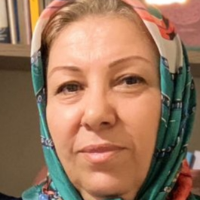Self-Regulatory Model of Learning based on Intelligence Beliefs and Classroom Atmosphere Perception Mediated by Self-Efficacy in Gifted Students
The aim of this study was to investigate a self-regulatory model of learning based on intelligence beliefs and classroom perception mediation of self-efficacy in gifted students.
The present study was applied, in terms of purpose and descriptive and correlational, in terms of data collection method. The statistical population was all gifted high school students in the 2nd and 4th districts of Tehran in the academic year of 2009-2010. Four hundred students were selected by multi-stage cluster sampling method. Research tools included the Self-Regulatory Learning Questionnaire (Pintrich et al., 1990), Intelligence belief (Abdolfattah and Yiths, 2006), Classroom Perception atmosphere (Rovy, 2002) and General Self-Efficacy (Sherer et al, 1982). The collected data were analyzed by Pearson correlation method and structural equation modeling by Amos24 and SPSS26 software.
The results showed that the final model had a good fit with the data. Based on the results of direct relationships of research variables showed that intelligence beliefs had a positive and significant effect on self-efficacy and self-regulation of learning, as well as perception of classroom atmosphere on self-efficacy and self-regulation of learning and self-efficacy on self-regulation (P<0.001). The indirect effects of intelligence beliefs and perception of classroom atmosphere on self-regulation of learning through self-efficacy were 0.1215 and 0.1185, respectively, which were statistically significant (P<0.001).
Considering that factors such as intelligence, motivational and environmental beliefs affect the learning self-regulation and subsquently learning self-regulation has an important role in academic achievement. The results of this study can have important implications for those involved in education and mental health services and families.
- حق عضویت دریافتی صرف حمایت از نشریات عضو و نگهداری، تکمیل و توسعه مگیران میشود.
- پرداخت حق اشتراک و دانلود مقالات اجازه بازنشر آن در سایر رسانههای چاپی و دیجیتال را به کاربر نمیدهد.


